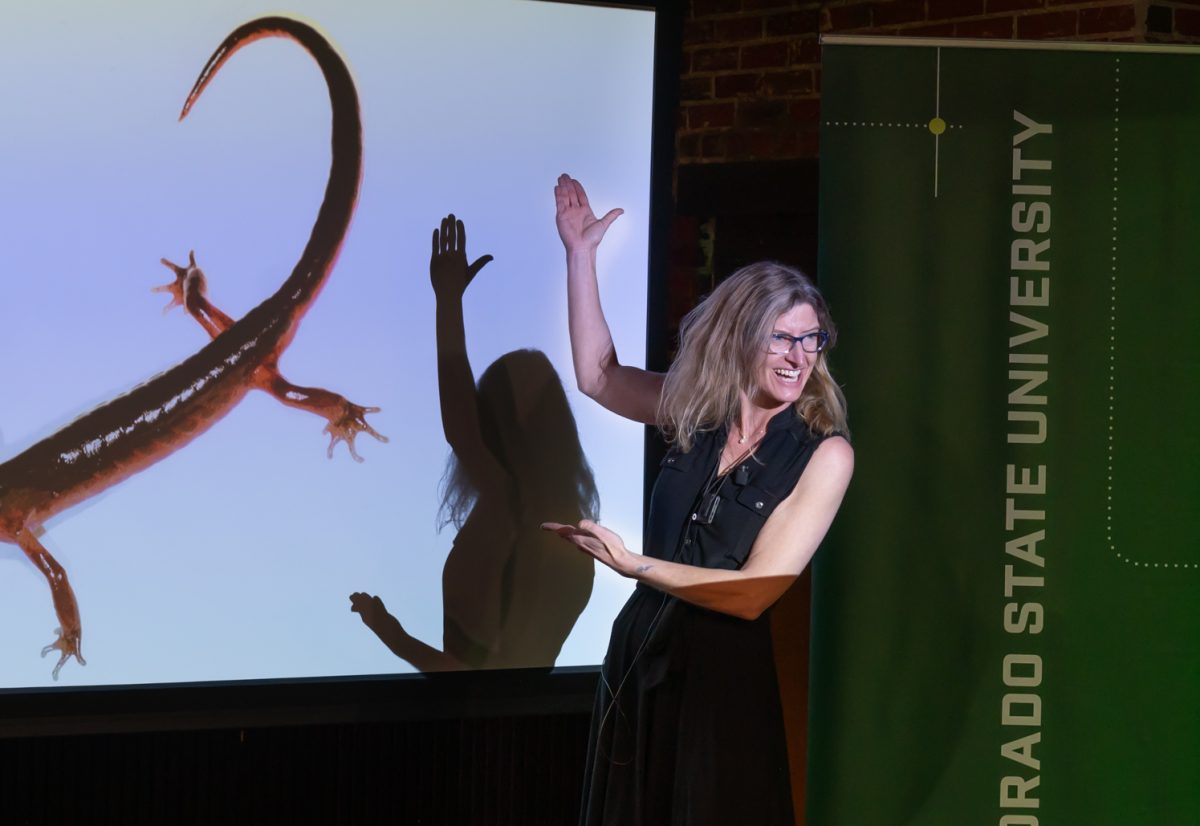Beer is a big deal in Fort Collins. There are over 20 breweries ranging from small, independent craft establishments to major players like New Belgium Brewing, the fourth largest craft brewery in the country.
But what goes on behind the scenes of making great beer? Colorado State University has a degree program dedicated to this question. Students and faculty in the fermentation science and technology program spend their days learning the science of brewing as well as food fermentation. There is a lot more science involved than you might think.
Charlie Hoxmeier is an assistant professor in the department of food science and human nutrition and the co-owner of Gilded Goat Brewing Company, which has two locations — one in Midtown next to Trader Joe’s on College Avenue and the other in Old Town. Hoxmeier began homebrewing during graduate school as a break from studying for his Ph.D. in microbiology at CSU.
He now applies his science background on a regular basis as he brews for Gilded Goat and teaches classes for the FST program.
“I think for some people, there’s a perception that it’s just all of us sitting around and drinking beer and talking about beer,” Hoxmeier said. “But no, there’s a lot of science that’s involved with the process.”
At the most basic level, brewing requires only four main ingredients: water, hops, malt and yeast. This last ingredient, yeast, is key to the fermentation process. This is because yeast is a living microorganism that feeds on sugar and produces alcohol as a byproduct.
More complex beer can incorporate bacteria like probiotics, which are found in yogurt, to bring out certain flavors. Working with living organisms can be challenging, especially when trying to create a consistent, safe product.
Even small changes in the balance of these ingredients and brewing conditions can create incredible variation in flavor profiles. Brewers tightly control variables like temperature, pH levels and fermentation time to bring their visions to life. This is why a background in science can be a powerful asset; it offers brewers a deeper understanding of the process, allowing them to master the craft.
“Brewing is a bit of art and science,” said Jeff Biegert, New Belgium Brewing-sponsored instructor and brewmaster in the FST program. “We teach primarily the science here. It’s hard to teach the art part, but that kind of comes with time and experience.”
Students in the FST program are required to take courses in chemistry, microbiology and mathematics to prepare for careers in the brewing industry. They study every step of the brewing process in detail, learning how to design complex recipes from scratch.
Craft brewing is only one of many possible paths for students of the FST program. Maggie Fischer graduated from the FST program in 2021 and now works as a senior specialist at Molson Coors Beverage Company in Golden, Colorado. She initially joined the program because she wanted a change of pace from attending pharmacy school.
“It seemed like something interesting, new and challenging since the beer industry is moving forward to be more science-based,” Fischer said. While completing her capstone research project, she said she realized she enjoyed the atmosphere of working in a large-scale beer production facility.
“I liked the fast-paced environment, the problem-solving and troubleshooting,” Fischer said. “You meet a lot of different types of people. Not everybody comes from a brewing background, but we’re all here for the same goal.”
For Biegert, part of the excitement of brewing comes from its dynamic nature. Although the basic steps are simple and have been practiced by humans for thousands of years, modern brewing is a fast-paced amalgamation of ever-evolving technology and consumer preferences.
“I realized I could spend my entire career and lifetime learning about it, and I still wouldn’t know everything,” Biegert said.
“It’s really a labor of love,” Hoxmeier said. “Brewers get into the industry because they love the science and the artistry behind it. You don’t open up a brewery to get rich — it’s a lot of hard work. … So you really have to love what you do.”
Reach Lizzy Rylance at science@collegian.com or on Twitter @csucollegian.








